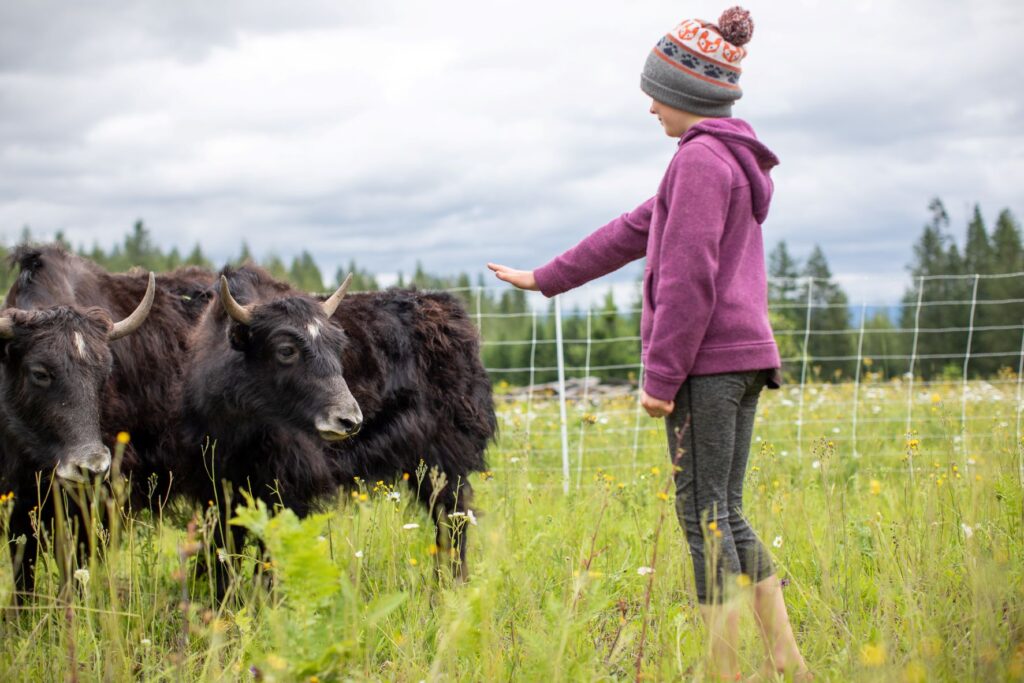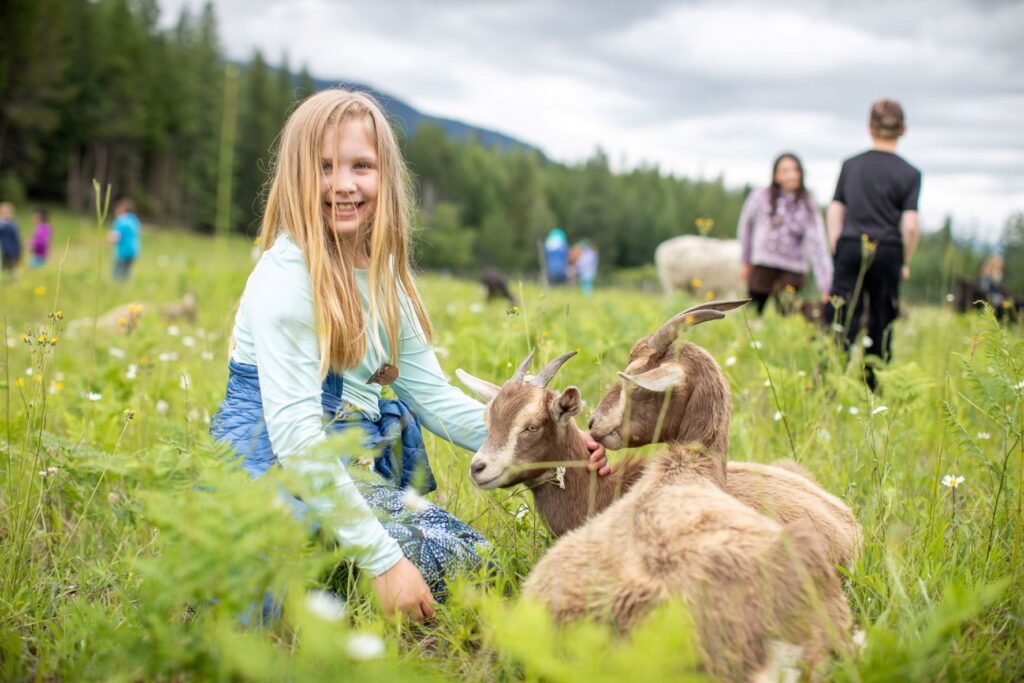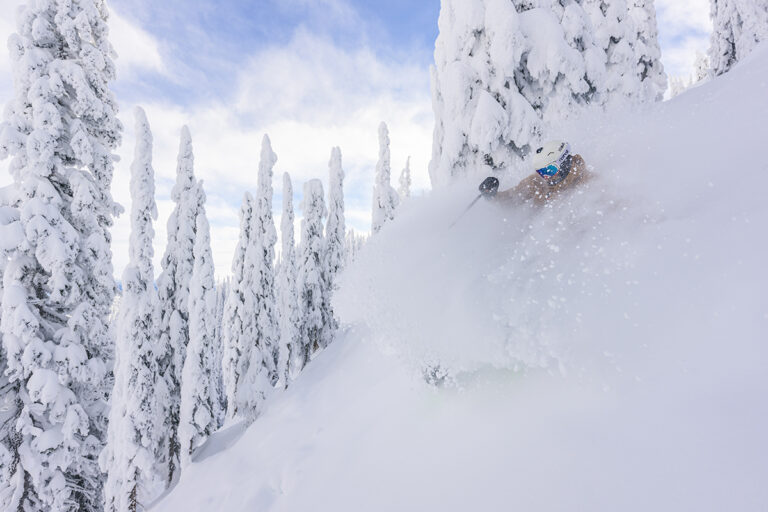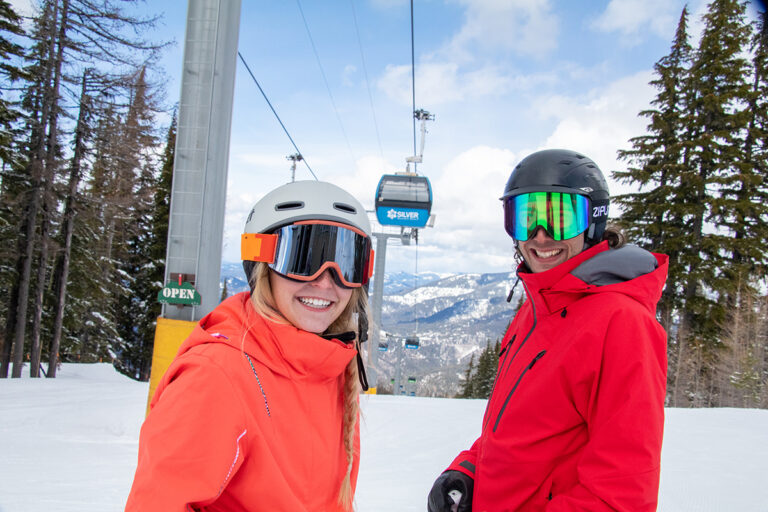Many people out enjoying the trails at Pine Street Woods near Sandpoint this summer have been surprised to encounter a herd of unusual animals grazing in the meadow.
Purchased by the Kaniksu Land Trust in 2015, Pine Street Woods Community Forest is a 180-acre, rolling woodland natural area that sees plenty of hikers, mountain bikers, and trail runners. The presence of the eclectic herd that includes goats, sheep, yaks, a llama, and even a Bactrian camel, on the other hand, is a temporary and relatively recent addition.
Owned by shepherd Chris Wujek, the herd is part of an effort by the Kaniksu Land Trust (KLT) to control several species of invasive plants that have spread throughout the forest’s large meadow. If left unchecked, noxious weeds can outcompete some species of native plants, reducing higher quality native food sources for wildlife.
The use of rotational grazing is an alternative to herbicides, explains KLT conservation director Regan Plumb. The use of chemical sprays would require closing the area off to the public, something that would be challenging to do, notes Plumb.

There are also concerns about the impact such chemicals can have on the natural environment, including soils, making the choice to try rotational grazing a no brainer.
While doing good work munching away at hawkweed, knapweed, oxeye daisy, and other invasive plants, Wujek’s herd has become a major attraction that’s drawing plenty of attention to KLT’s creative restoration effort.
“When the animals are out grazing, there’s a tremendous response from the community. You can walk right up and put your arms around the camel, your kids can pick up the baby goats and haul then around,” says Plumb. “We didn’t anticipate the PR value of having a shepherd on site, but it’s been pretty phenomenal.”
This is the herd’s second summer of grazing for three to four weeks at Pine Street Woods. Wujek moves his herd each day to cover the entire meadow over time, explains Plumb. He uses temporary electric fencing to keep the animals focused on the weed patch at hand and prevent overgrazing.
“It’s really intentional that we have a mixed flock of five different types of animals grazing too,” adds Plumb. “Because of that, it means one of them will eat anything.”
After eating down the weeds and other plants, the smaller hooved animals then help mix their manure into the soil, and the natural fertilizer gives the native grass and wildflower seeds that KLT then plants an added boost over the grazed down noxious weeds.
Getting rid of invasive plants at Pine Street Woods will take time, says Plumb. “We expect that 5-6 years of treatment will be necessary before we see results.”
Each grazing season helps discourage the weeds and gives grasses and other native plants a chance to compete and eventually flourish.
Kaniksu Land Trust purchased the Pine Street Woods property in 2015 from a local family that had grazed cattle and cut firewood on the property for 50 years. Pine Street Woods opened to the public in 2019 and has become a popular recreational destination for locals and visitors alike.
For directions and more information, visit Kaniksu.org/play.

For more stories about Pine Street Woods, visit the OTO archives.












